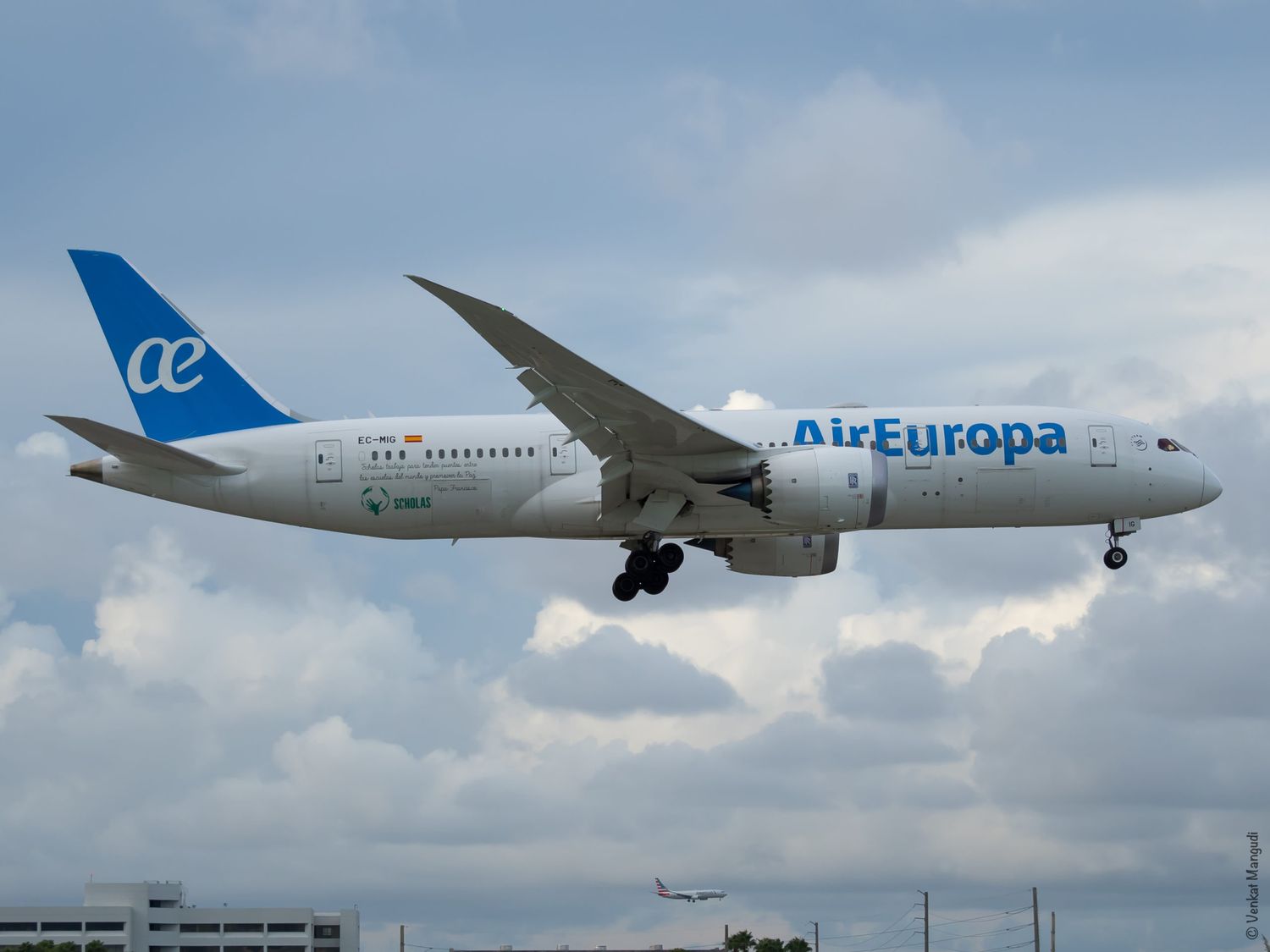Air Europa completes its «most sustainable flight of the year» between Madrid and Amsterdam
As part of the «Sustainable Flight Challenge» initiative by the SkyTeam alliance, of which it has been a member since 2007, Air Europa has completed its «most sustainable flight of the year» between Madrid-Barajas (MAD) and Amsterdam-Schiphol (AMS) airports.
The initiative involves a «friendly competition» among the companies within the alliance, and some of its subsidiaries, to contribute to innovation in solutions that reduce the environmental impact of the industry. Air Europa had previously participated in the challenge in May 2022 when it operated a flight between the Spanish capital and Gran Canaria, which served as a demonstration of more efficient operational practices.
For this year, the «Sustainable Flight Challenge» established a total of 33 different categories and will have seven main winners. Each category recognizes the application of different practical solutions that are already within the reach of operators.
See also: Air Europa joins SkyTeam’s sustainable program
Air Europa’s «most sustainable flight of the year»
Air Europa’s flight covered the route between Madrid and Amsterdam with a Boeing 787 Dreamliner. Thanks to improved aerodynamics and the use of innovative materials in its construction, this type of airplane can reduce fuel consumption by up to 20% compared to other aircraft in the same segment. It also has a considerably lower acoustic impact.
To carry out the operation, which falls under the short-haul services category of the initiative, it was used a blend of sustainable aviation fuel (SAF) produced by Repsol from renewable materials such as non-food organic waste. Electric vehicles performed the ground handling tasks at both airports.
Furthermore, Air Europa’s teams worked to define the ideal flight plan, taking into account the cargo and passenger load.
Biodegradable materials were used for onboard service, and waste was disposed using a separation criterion. The gastronomic service included only fresh locally sourced products. For its part, the crew carried digitized manuals, reducing the amount of paper and consequently the weight and fuel consumption.
See also: ITA Airways joins SkyTeam’s Sustainable Flight Challenge


Para comentar, debés estar registradoPor favor, iniciá sesión